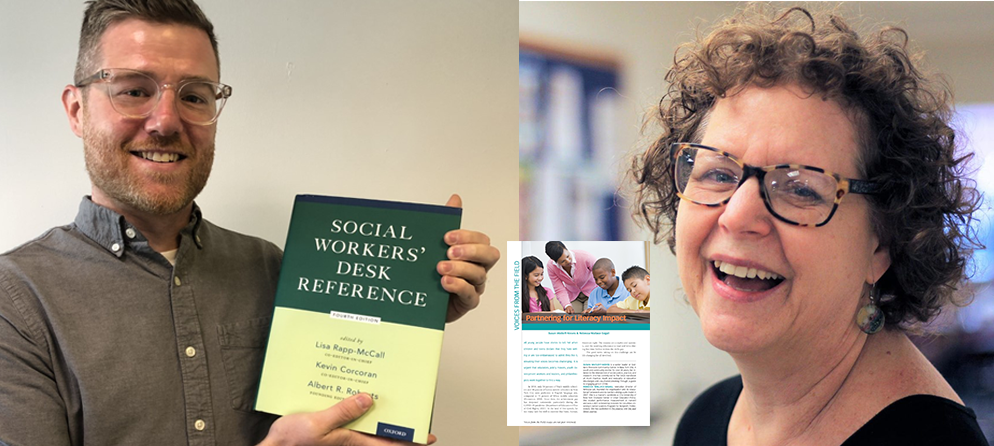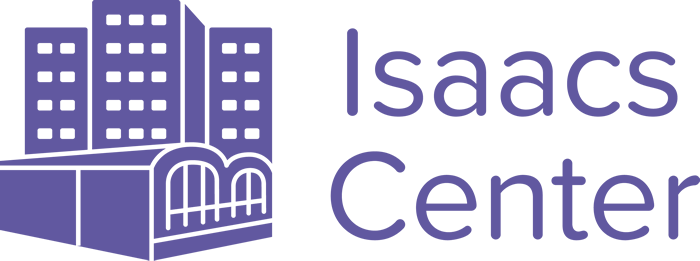
Writing for publication is a great way to share your ideas and influence your field—and it also strengthens your own work, according to two of our recently published senior leaders.
“It was good for me as a teacher, as a clinician, as a supervisor, to write something that’s academic and peer-reviewed—because it’s hard!” said Aaron Rooney, who oversees all programs for older adults at the Isaacs Center and Goddard Riverside. “It’s like writing a college paper times ten, because it’s real.”
Rooney co-wrote a chapter on case management for the Social Workers’ Desk Reference, a standard text used in universities and in the field. He describes case management as one-on-one work to meet a client’s needs—from food and housing, to making sure they’re up to date on their government benefits, to helping them figure out a confusing letter they got in the mail. He says he and his writing partner updated the chapter from the previous edition and added their own insights.
“The way I think about case management is through the lens of food security, financial security and housing security. And then we tried to look at it from a diversity perspective as well. The previous chapter didn’t have anything about working with LGBT older adults and thinking about how to adjust case management programs from one neighborhood to the next.”
Deputy Executive Director Susan Matloff-Nieves has been publishing articles for years—and even co-wrote a book on how to help girls succeed in science, technology, engineering and math. Her latest piece is “Partnering for Literacy Impact” in the journal Afterschool Matters. It’s about the partnership between Goddard Riverside and Writopia Lab, which provides writing programs for young people. Matloff-Nieves, writing with Writopia Lab’s Rebecca Wallace-Segall, describes the alliance as combining the strengths of both organizations to create a culture of literacy, learning and joy.
“Basically we told the story of how it developed, but I think in the process we were trying to articulate what makes a good partnership, because partnerships can be instrumental,” she said.
Matloff-Nieves loves writing and says it enriches her work: “The writing that I do as a researcher is really reflective. You look at challenges, you learn from other people. It’s inquiry.”
She adds that it’s important for people working in the field to research and write. “Research is political. Who decides the questions that we answer? Our participants should be posing questions, and we should as practicioners should be posing questions, that we then seek answers to.”
Rooney and Matloff-Nieves both plan to continue writing, and say the partnership between Goddard Riverside and the Isaacs Center should provide even more opportunities to pioneer new approaches and report on them to a broader audience.
“I think there’s going to be a lot of opportunities to do interesting things, and we’d be remiss not to write about those things,” said Rooney.
